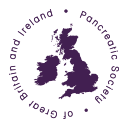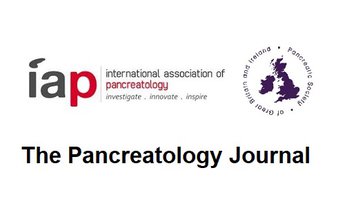Pancreatic Cancer Charities
We are a small charity with a huge voice shouting about much needed change for pancreatic cancer, and are passionately committed to affecting real change.
Founded by a survivor, Ali Stunt, who proves that there is hope, early diagnosis is achievable and survival is possible, our focus is on ensuring that patients are diagnosed with pancreatic cancer at a stage that gives them the best chance of survival.
Hearing daily of more people diagnosed late and dying from pancreatic cancer is a powerful reminder of why our work is so vital. With your help, we fund research into improving early diagnosis, create award-winning awareness campaigns, provide educational courses for primary care professionals and provide information for patients and clinicians.
Quite simply, we know that pancreatic cancer can be detected early, and as long as we are here and continue to be supported, we will do all we can do to make sure this happens more and more.
Pancreatic Cancer UK is fighting to make a difference. We're taking on pancreatic cancer together: by supporting those affected by the disease, investing in research, lobbying for greater recognition of pancreatic cancer, and being there for everyone involved in the fight. For too long this disease has been sidelined.
We want to make sure that everyone touched by it gets the support and information they need. We're here for everything you need to know about pancreatic cancer. - We provide expert, personalised support and information via our Support Line (https://www.pancreaticcancer.org.uk/information-and-support/get-support/support-line/) and through a range of publications (https://www.pancreaticcancer.org.uk/information-and-support/our-publications/)
- We fund innovative research (https://www.pancreaticcancer.org.uk/research/) to find the breakthroughs that will change how we understand, diagnose and treat pancreatic cancer
- We campaign (https://www.pancreaticcancer.org.uk/policy-and-campaigning/) for change; for better care, treatment and research, and for pancreatic cancer to have the recognition it needs.
We also run Study Days (https://www.pancreaticcancer.org.uk/health-professionals/educational-events/) for Health Professionals (https://www.pancreaticcancer.org.uk/health-professionals/) and provide funding (https://www.pancreaticcancer.org.uk/pipfund) to help Health Professionals organise events of their own.
Join our Health Professional Network (https://www.pancreaticcancer.org.uk/hpnetwork) to keep up to date.
Why we exist?
Each year around 9,000 people in the UK are diagnosed with pancreatic cancer. It's the fifth most common cause of cancer death, causing five percent of all cancer deaths each year.
Lowest survival rate
Pancreatic cancer has the lowest survival rate of all cancers, just 3% of those diagnosed survive for five years. It is also the only cancer that has seen no improvement in this figure over the last 40 years.
For many cancers, five year survival rates have increased hugely since the 1970s. For breast cancer where large amounts have been spent on research, five year survival rates have increased from 50% to 80%.
Low levels of research funding
Yet despite its high death rate and lack of improvement in chances of survival, pancreatic cancer attracts little research funding in comparison with many other cancers. In 2011, pancreatic cancer attracted just 1% of research funding from the major funding bodies.
There are a number of factors that influence the level of research funding for particular types of cancer, but for pancreatic cancer, researchability and fundraising are the most significant.
Researchability
Some tumour types are easier to work on than others and many researchers are attracted to areas or disease where there is real evidence of potential for progress. Pancreatic cancer is notoriously difficult to diagnose and treat, because it is unusually aggressive, symptoms are often vague and appear at a late stage, when surgery is no longer possible.
Fundraising
Certain types of cancer attract more public donations than others. Public donations specifically for pancreatic cancer in the past have been very limited, because this cancer rarely made the headlines, there were no charities solely for pancreatic cancer and unless directly affected, few people were aware of the disease and the need for much more research.
The Pancreatic Cancer Research Fund was set up in 2004 and exists to try and address these issues to raise new funds for research, and also be a voice for pancreatic cancer patients and argue for a fair allocation of research funding and attention.
Pancreatic Cancer Scotland was formed in 2010, and is the only Scottish charity dedicated solely to improving the outcome for patients diagnosed as having cancer of the pancreas and associated tumours. In 2011, pancreatic cancer attracted just 1% of research funding from the major funding bodies in the UK. Pancreatic Cancer Scotland aims to help to redress this funding anomaly by investing in projects that will provide information, advance research, and improve the standard of healthcare for patients with pancreatico-biliary cancer in Scotland.
Our objectives are to:
Promote awareness of pancreatic cancer in Scotland;
- Advance education of pancreatic cancer to individuals and members of the healthcare profession in Scotland;
- Advance research projects in Scotland with the aim of developing effective treatments and improving survival rates of those suffering from pancreatic cancer in Scotland;
- Advance the standard of healthcare for individuals suffering from pancreatic cancer in Scotland; and
- Advance the provision of practical and emotional support to pancreatic cancer sufferers and their families in Scotland.
Our work is relevant to a number of cancers, including Pancreatic Ductal Adenocarcinoma (PDAC), which is the most common type of pancreatic cancer, Cholangiocarcinoma (cancer of the bile duct), Ampullary Cancer (at the end of the bile duct), Duodenal Cancer (in the small intestine), as well as Pancreatic Endocrine Tumours (rare forms of cancer in the pancreas).







